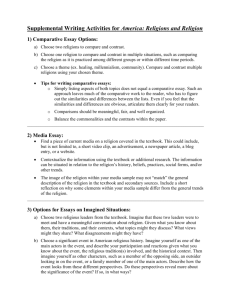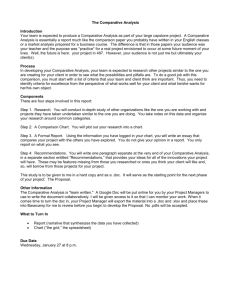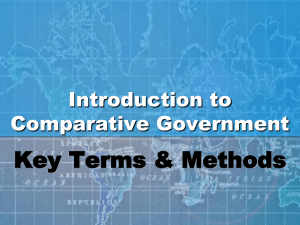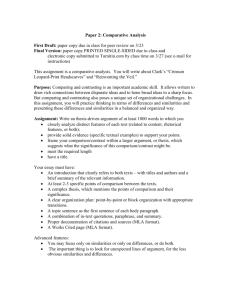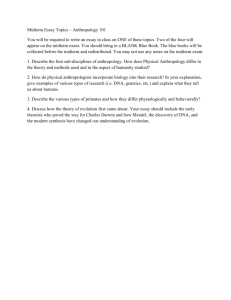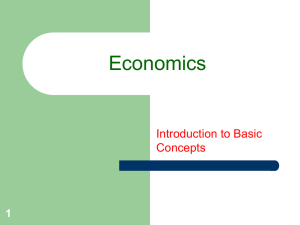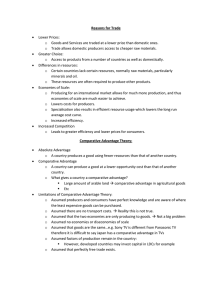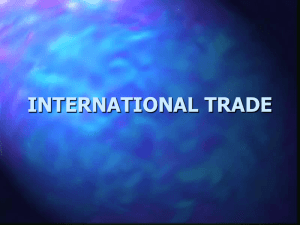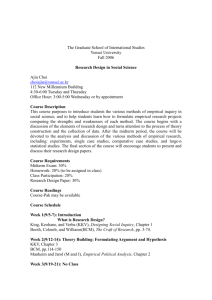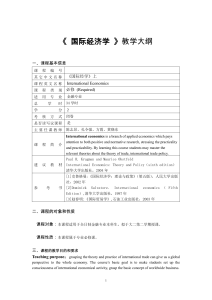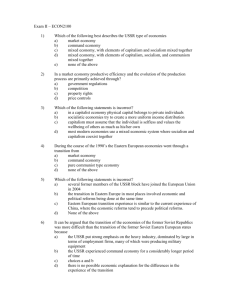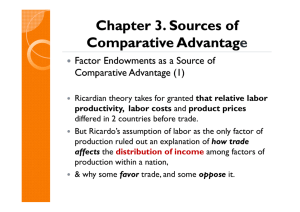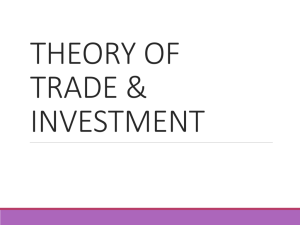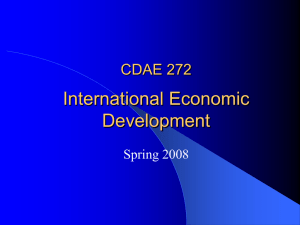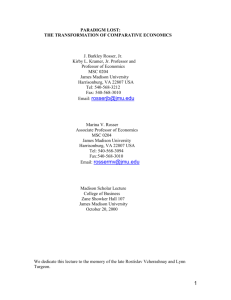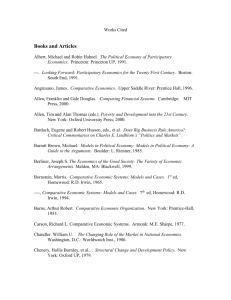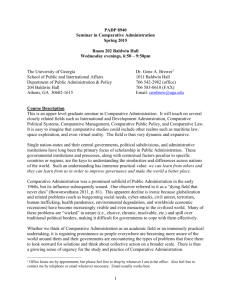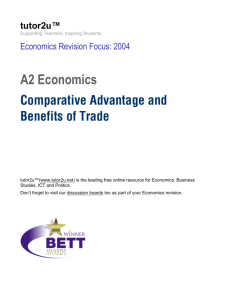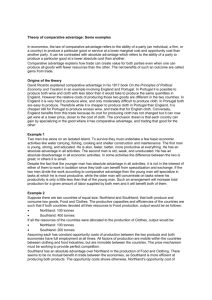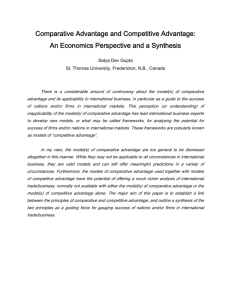Comperative Economics
advertisement
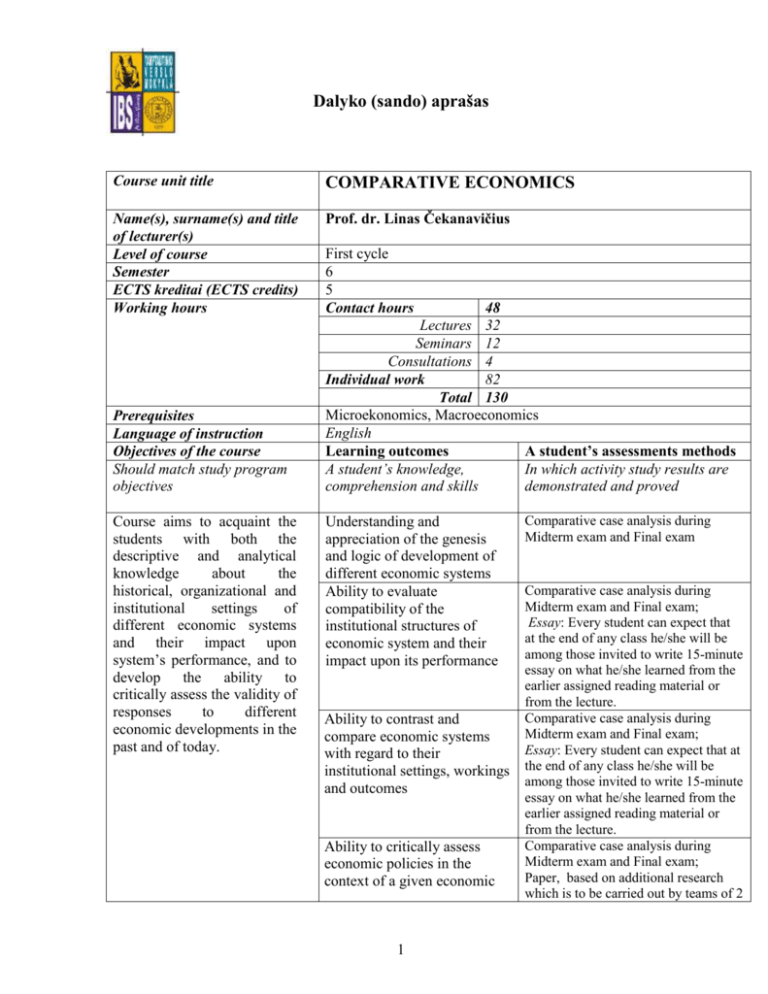
Dalyko (sando) aprašas Course unit title COMPARATIVE ECONOMICS Name(s), surname(s) and title of lecturer(s) Level of course Semester ECTS kreditai (ECTS credits) Working hours Prof. dr. Linas Čekanavičius Prerequisites Language of instruction Objectives of the course Should match study program objectives Course aims to acquaint the students with both the descriptive and analytical knowledge about the historical, organizational and institutional settings of different economic systems and their impact upon system’s performance, and to develop the ability to critically assess the validity of responses to different economic developments in the past and of today. First cycle 6 5 Contact hours 48 Lectures 32 Seminars 12 Consultations 4 82 Individual work Total 130 Microekonomics, Macroeconomics English Learning outcomes A student’s assessments methods A student’s knowledge, In which activity study results are comprehension and skills demonstrated and proved Understanding and appreciation of the genesis and logic of development of different economic systems Ability to evaluate compatibility of the institutional structures of economic system and their impact upon its performance Ability to contrast and compare economic systems with regard to their institutional settings, workings and outcomes Ability to critically assess economic policies in the context of a given economic 1 Comparative case analysis during Midterm exam and Final exam Comparative case analysis during Midterm exam and Final exam; Essay: Every student can expect that at the end of any class he/she will be among those invited to write 15-minute essay on what he/she learned from the earlier assigned reading material or from the lecture. Comparative case analysis during Midterm exam and Final exam; Essay: Every student can expect that at the end of any class he/she will be among those invited to write 15-minute essay on what he/she learned from the earlier assigned reading material or from the lecture. Comparative case analysis during Midterm exam and Final exam; Paper, based on additional research which is to be carried out by teams of 2 students. setting. Case studies; Problem analysis; Individual reading of assigned materials, preparing for the „moot court“ type of class discussions It is evident that developed economies, although belonging to the same general class of economic systems, represent various, sometimes quite different types of organization and performance. Why the economic systems are so markedly different? What are their specific allocation mechanisms, forms of ownership, types of incentives, role of planning, income distribution and redistribution schemes, relation between politics and economics? Is there panacea type of answer to the economic downturns? The course intends to shed a light on these issues, heavily leaning on the case studies that represent varieties of advanced market economies, as well as issues of economic transition. Teaching methods Course unit content Topic tittle Contact hours Individual work and hours 1. What the Comparative Economics is about : Object , Goals and Methods of Study 2. American Capitalism: The Advanced “Individualistic” Market Economy 2 - 3. Japanese Economy: “Economy of Traditions” 8 6 12 Individual study of assigned materials 12 Individual study of assigned materials 4. Swedish “Scandinavian Socialism” 6 12 Individual study of assigned materials 5. British Economy : Glory, Fall and Resurrection 6 12 Individual study of assigned materials 6. Germany: The Social Market Economy 6 12 Individual study of assigned materials 7. The Socialist soviet-type economic system 6 10 Individual study of assigned materials 8. China’s phenomenon: „socialist market economy“ 8 Total Reading list Publication year 2009, 2000 2004 12 Individual study of assigned materials Authors and title 48 82 Publisher Routledge, Dryden. Gardner, H.S. Comparative Economic Systems. Rosser J.B., Rosser M.V. Comparative Times Mirror Higher Education Group Economics in a Transforming World Economy (2nd ed.) Additional reading 2 Publication year Authors and title 2003 Publisher Gregory, Paul R., Stuart, Robert C. Comparing Economies in South Western the Twenty First Century. College, 2001 Anders Åslund: The Myth of Output Collapse after Communism, Post-Soviet Economies Project, Carnegie Endowment, Number 18, March 2001 http://www.carnegieendowment.org/files/18aslund.pdf http://business.baylor.edu/Steve_Gardner/CES.HTM http://www.cia.gov/cia/publications/factbook/index.html Assessment forms: Assessment requirements Mid-term and Final exam: closed-book, in-class, mostly open-endedquestions. Paper: based on additional research which is to be carried out by teams of 2 students. Generally, paper is expected to describe specific economic system or discuss economic reforms in a selected country. To qualify for the “pass” grade the weighted sum of accumulated points has to be more that 45. There are no threshold levels established for points obtained from particular assessment form. Understanding of the historical, organizational and institutional Assessment criteria settings of different economic systems, their impact upon system’s performance, validity of responses to various economic developments in the past and of today, and an ability to express one’s thoughts clearly and succinctly in writing. Student performance is assessed on a 0-100 point scale. Mid-term exam will carry 25% and Final exam, that will cover the The composition of final whole course, 50% of the final mark. Paper will represent another accumulative mark 25% of the final mark. The best and most relevant papers might be selected for class presentation, thus earning premium points (up to 20% of the paper grade). Linas Čekanavičius, 2014-08-20 Course outline prepared by Approved by the Study Program Committee 3


